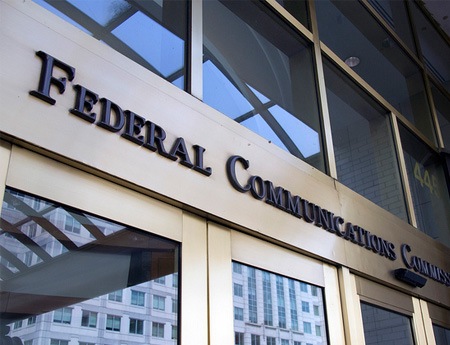FCC Keeps Most Broadcast Ownership Restrictions

The smarter way to stay on top of broadcasting and cable industry. Sign up below
You are now subscribed
Your newsletter sign-up was successful
FCC Chairman Tom Wheeler has circulated a quadrennial media ownership review item that retains, with some tweaks, most of the current media ownership restrictions on dual station and newspaper/station ownership and even adds some.
Broadcasters had been hoping for some relief given what they said was major competition from MVPDs and the web.
As expected, the item resubmits the JSA-tightening rule -- remanded recently by the court -- with the change that grandfathered JSAs can be sold without triggering ownership issues -- as Congress directed it to do. So, any JSA of over 15% of sales still counts as ownership interest, but those in existence before March 2014 don’t have to be unwound, as Congress has already signaled in legislation.
Related: One Media to FCC--Open the Digital Gates
The FCC also has defined shared services agreements and will require they be filed with the FCC, but does not make them attributable as ownership interests...yet.
"Our analysis indicates that the ownership restrictions remain necessary in the public interest, though the realities of the media marketplace require some targeted modifications of a number of the rules," the item concludes," the FCC said.
Related: FCC's Forward Auction Starts Late July at Earliest
The smarter way to stay on top of broadcasting and cable industry. Sign up below
The item has been circulated to the other commissioners for a vote, though did not indicate a timetable on when that might happen.
According to a summary of the item it will:
" Carry out the Third Circuit’s remand of diversity issues, re-adopt the small business revenue-based eligible entity standard, address proposals submitted by MMTC, and decline to adopt race- or gender-based measures.
" Readopt the TV JSA attribution rule consistent with the court’s guidance in Prometheus III and Congress’s guidance on grandfathering.
" Adopt a definition of shared services agreements; require that these agreements be filed with the Commission and made publicly available; and do not attribute any such agreements, other than JSAs, at this time.
Related: Wheeler’s Set-Top Plan Appears to Be in Trouble
The item retains the existing local ownership rules, including local TV ownership.
It extends the ban on co-ownership of two top-four rated TV stations to network affiliation swaps to prevent using those to evade the restrictions.
It retains the radio/TV crossownership rule and the newspaper/broadcast crossownership rule, but in the latter case adds a failing station exemption, as it has in TV purchases that would otherwise create duopolies that violate the limits.
The FCC did say it would keep an eye on the broadcast incentive auction impact with an eye toward any possible future changes. "Given that the broadcast TV incentive auction is underway and its results will not be known for some time, the auction’s effect on the marketplace is not yet clear. The Commission’s future quadrennial ownership review will be able to assess the impact of marketplace changes resulting from the auction."
In March 2014, Wheeler officially combined the 2010 and 2014 quadrennial media ownership reviews. At the time, the FCC did not loosen most broadcast ownership rules while continuing to ask whether they should be lifted in the future. The item also made TV joint sales agreements (JSAs) of over 15% of ad sales attributable as ownership interests.
The Third Circuit Court of Appeals recently threw out the JSA tightening, primarily because the FCC changed the ownership reg before completing the reasoned analysis for the underlying rules that is supposed to happen in the quadrennial review.
The court "reminded" the FCC of its obligation to complete the Congressionally ordered quadrennial review, but did not give it a deadline (one judge, Anthony Scirica, said he would have ordered a resolution).
FCC Chairman Tom Wheeler had already said he would circulate the quadrennial review item by the end of June, and signaled that it could include a return of the JSA rule-tightening, or at least setting the groundwork for the return.
"The court didn't say the JSA rule doesn't make sense," said Wheeler . "They said it needs to be based on rules that themselves haven't been reviewed. So, you review those rules [which he said will be completed, at least in draft form, by June 30] and that sets up a predicate on any decision on JSAs."
Contributing editor John Eggerton has been an editor and/or writer on media regulation, legislation and policy for over four decades, including covering the FCC, FTC, Congress, the major media trade associations, and the federal courts. In addition to Multichannel News and Broadcasting + Cable, his work has appeared in Radio World, TV Technology, TV Fax, This Week in Consumer Electronics, Variety and the Encyclopedia Britannica.

